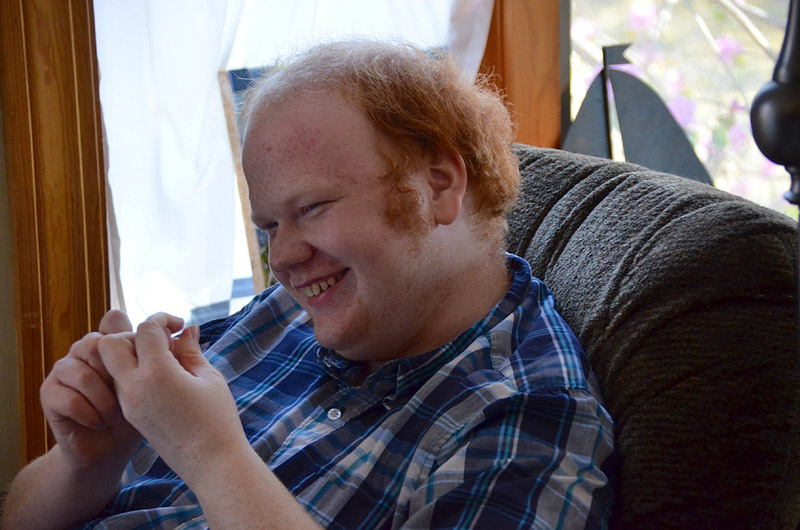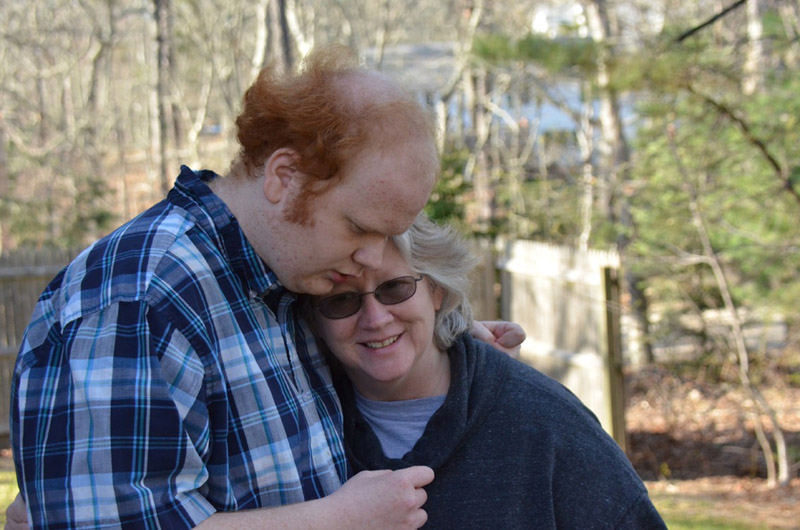For most Martha’s Vineyard teenagers, the end of high school is both an achievement to celebrate and a milestone to pass on their way to adulthood and independence. It’s different for autistic students, many of whom will never walk the stage at the Tabernacle to receive that prized diploma. At age 22, they’re finished with public school forever — that’s the law in Massachusetts, and it leaves families scrambling to piece together a future for these vulnerable Islanders.
The Island Autism Group, founded in 2008 by Vineyard mothers Kate DeVane and Marcy Bettencourt, is campaigning to build a permanent, year-round center serving autistic Islanders of all ages. A five-kilometer fun run and walk in Edgartown this Saturday will raise funds toward the purchase of land for the center. The event steps off at 9 a.m. from the Katama Airfield (for information, contact blavakian@icloud.com).

The proposed Island Autism Center can’t come soon enough for Dan Meaney. He turns 22 next month. “May 27,” he murmurs, to the pleased surprise of his mother Connie Berry on a sunny afternoon this week at their home in Vineyard Haven.
“Good job, Dan!” she says. “It must be on your mind. I’ve never heard you say it spot-on like that.”
It’s a hard deadline: Thursday, May 26 will be Dan’s last day in special education at Martha’s Vineyard Regional High School, where the soft-spoken redhead follows an active routine of work, exercise, music and nature hikes. He’s also made fast friends with classmates and takes part in high school life by delivering water to the sports teams on the field.
“I don’t think he’s developed friendships like that before, in other places where we’ve been,” says Ms. Berry, whose family moved to the Vineyard from Syracuse when Dan was 18.
With a nearly ever-present smile that’s both bashful and infectious, Dan speaks few words but often chuckles happily and clicks his tongue. He readily shakes hands with a stranger and celebrates achievements — like saying his birthday — by bucking knuckles with his mother and friends like 20-year-old Kyle Stobie.
“He’s always got that big smile on his face,” says Mr. Stobie, who became a paraprofessional special educator in the life skills class after graduating from the high school two years ago. But because of the autism that has affected the development of Dan’s brain, the beaming, broad-shouldered young man from Vineyard Haven needs someone with him every waking hour of the day.
Left alone, Dan doesn’t know when it is safe to cross the street, that eggs are not for breaking or whether food on a table is for him or someone else. With Mr. Stobie or another companion by his side, he happily goes through a school routine that includes the life skills class, sports activities, nature hikes and unpaid jobs at Thimble Farm, the FARM Institute and the Wheel Happy bicycle shops.
A compelling video about the Island Autism Group, made by Windy Films with support from the Tower Foundation, provides a glimpse of Dan’s daily life as he carefully places plants in Thimble Farm’s hydroponic greenhouse, hustles in the high school gym and walks on the beach with his mother and friends. The video also spotlights Ms. DeVane and her non-verbal son Mark, 11, at their home in West Tisbury.
The video’s message is simple: Autistic Islanders need a place of their own. “Kids like Dan are going to happen every year,” Ms. DeVane tells the Gazette. “My son’s halfway through his school career at [age] 11.”
The state-mandated end of public school at age 22 means “a whole lot of planning for families,” says Ms. Berry, who is now navigating the complicated process of designing a future for her son after his birthday next month.
“He has to be up and moving. Plus, I want him to have a full and rich life, so that means going to work and taking hikes and all the things he’s been able to do in his life skills class,” she says.
As proposed, the Island Autism Center would provide daily resources — including jobs — for autistic adults, after-school activities for students and summer programs serving Vineyard visitors as well as year-round residents.
“People coming for the summer — they’re kind of stuck,” Ms. Berry says. And Islanders with autism in the family are challenged year-round, especially after the age 22 cutoff date. “Parents of autistic kids usually have to take turns leaving the house,” she says.
Some families send their adult children to residential facilities off-Island, which Ms. DeVane calls “the worst possible thing you can ask somebody to do” with an autistic child.
There is no standard form of this neurodevelopmental disorder, continues Ms. DeVane, citing the often-quoted motto: “When you know one person with autism, you know one person with autism.”
Autistic children often look like anyone else, which can lead to some consternation among kindly members of the public who might ask Mark his name and get hand-waving babble in response. That’s his way of acknowledging a friendly greeting, Ms. DeVane says, but a startling experience for strangers who don’t understand that he’s autistic and cannot process communication in the same way as others.
Still, the Vineyard community takes Dan, Mark and other Islanders with special needs as they are. Mark is always welcome at Cronig’s Markets on family shopping trips, Ms. DeVane says. “He’s part of that community, and what I hope is that when he’s 40 and I’m gone, Mark will go to Cronig’s with someone else and people will accept him.”
The Family and Friends 5K Fun Run/Walk to raise awareness for autism will be held on Saturday, April 23, at 9 a.m. at the Katama Airfield. The donation is $25 for individual/family. All proceeds benefit the Island Autism Group. To learn more about the group, go to islandautism.org.







Comments (4)
Comments
Comment policy »